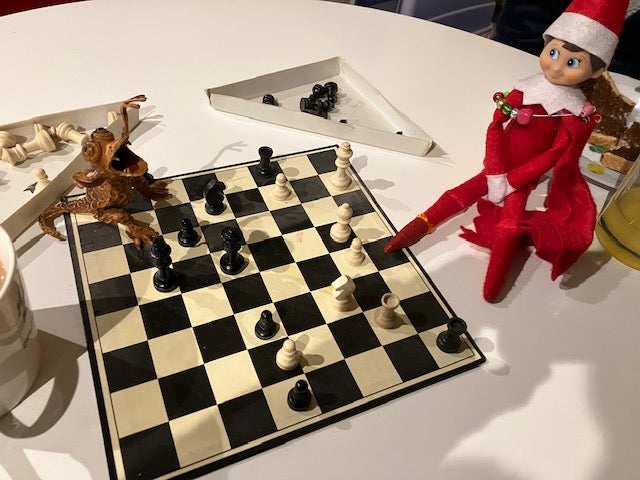Christmas traditions come and go. Some seem such an integral part of the festive period that it is impossible to imagine the season without them. Christmas without a tree, for example, would feel quite wrong – and yet people celebrated the big day for centuries without a massive spruce in their front room.
The royal family have a lot to answer for, as ever. Prince Albert tends to get the credit for making Christmas trees popular in Britain, although Queen Charlotte, wife of George III, had one installed at Windsor as early as 1800. Turkey for lunch was apparently an innovation of Henry VIII, but the Victorians again were responsible for popularising the bird as a staple of the Christmas table. Thankfully, that tradition seems to be on the way out: chicken is nicer and cheaper; a goose is best and not wildly more expensive. A curry is becoming a popular choice too.
In the digital age, Christmas cards may also have had their day. Even excitement over the Christmas No 1 has diminished since its peak in the 1970s and 80s.
As one tradition wanes, another rises however. And the most insidious of all the modern festive rituals is surely the Elf on the Shelf. For anyone fortunate enough not to be in the know, the Elf is a rather creepy little critter, with a face like an old-style ventriloquist’s dummy, whose role is to act as a kind of spy for Father Christmas.
The story of the Elf, told in a picture book developed and originally self-published by a US family in the mid-2000s, has become a sensation. The basic premise is that Santa has a lot of elves, which handily look like dolls and come with the oh-so-reasonably-priced book, and the role of these magical mannequins is to check on whether their adoptive owners are behaving nicely or naughtily in the weeks before Christmas. Each night, when everyone’s asleep, they fly back to the North Pole to give their report to the big man; then they return to a different spot in the house to check on the next day’s behaviour.
Obviously, parents have long relied on the threat of an empty stocking to keep their kids under control during the Christmas run-in, but the introduction of a Stasi Elf takes matters to a different level. It also, weirdly, undercuts the omnipotence of Santa, who once upon a time just knew who’d been naughty and nice but who now apparently has to rely on an army of agents.
Our Elf, dubbed Happy by my daughter, came into our lives seven or eight years ago, after an Elf called Elvis beguiled every child at school and caused a local run on Elf on the Shelf kits. He appears on 1 December every year, spreading tyrannical fear around the house.
Of course, all sorts of Christmas traditions are ultimately triumphs of marketing and commercialism, but some are more obvious than others
In the early years, when the magic was very real, my daughter was entranced, happily searching for the Elf each morning. As the people who had to remember to shift Happy to a new spot in the house every night, my wife and I were less delighted, but we took some enjoyment from the game. At some point, we positioned Happy with a small toy monster, which subsequently became his faithful friend.
My daughter is now 13, but with a brother six years her junior, the elfin shenanigans have continued. If you look online, you’ll find some extraordinarily inventive people in the world (with a lot of time on their hands) who create the most elaborate scenes with their elves. But really, it’s as much as I can do to shift Happy from one room to the next, and to resist the temptation to put him and his monster friend in compromising positions.
One year, when the children were proving particularly irksome, Happy disappeared for a day. He left a note to explain that he needed time to have a longer conversation with Father Christmas about some of the behaviour he’d seen. Seeing the look of fear on the kids’ faces made me feel like a KGB apprentice. The power of the Elf was real.
It’s certainly been real for its creators, who have spawned a vast corporate empire on the back of the tale’s success. Of course, all sorts of Christmas traditions are ultimately triumphs of marketing and commercialism, but some are more obvious than others. The Elf may have become a festive staple, but I’ll be glad to take him off the shelf and send him back to the North Pole (aka the upstairs cupboard). Just don’t tell Father Christmas I said so.



Join our commenting forum
Join thought-provoking conversations, follow other Independent readers and see their replies
Comments